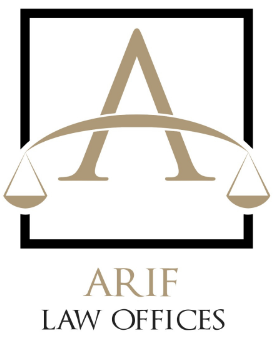For recipients of Deferred Action for Childhood Arrivals (DACA), obtaining lawful permanent residency (a green card) can be a transformative step toward a more secure and stable life in the United States. One common way to pursue this goal is through marriage to a U.S. citizen or lawful permanent resident. While DACA provides temporary relief from deportation and work authorization, it does not offer a direct path to permanent residency or citizenship. However, marriage to a U.S. citizen can open the door to adjustment of status (AOS), a process that allows individuals to apply for a green card without leaving the country.
This article outlines the key factors DACA recipients should consider when applying for adjustment of status through marriage, including eligibility requirements, potential obstacles, and the steps involved in the process.
Understanding Adjustment of Status for DACA Recipients
Adjustment of status is the process that allows eligible individuals present in the U.S. to apply for permanent residency (a green card) without having to leave the country. This is particularly important for DACA recipients, many of whom may have concerns about traveling outside the U.S. due to their temporary legal status. For DACA holders who marry a U.S. citizen, adjustment of status offers a viable path to becoming a lawful permanent resident.
Eligibility for Adjustment of Status Through Marriage
To adjust status based on marriage, DACA holders must meet several key criteria:
- Marriage to a U.S. citizen or lawful permanent resident: The applicant must be legally married to a U.S. citizen or lawful permanent resident at the time of filing. Marriages must be legitimate and not entered into solely for immigration benefits.
- Lawful entry into the U.S.: One of the biggest challenges DACA recipients face is proving they entered the U.S. lawfully. Adjustment of status requires that the applicant was inspected and admitted or paroled into the U.S. at the time of their last entry. DACA status alone does not confer lawful entry, which can complicate the process for those who entered the country without inspection (EWI).
- Advance Parole Exception: DACA recipients who have traveled abroad with advance parole and returned to the U.S. lawfully may qualify for adjustment of status based on this lawful entry.
- No current immigration bars: If the DACA recipient is subject to certain bars, such as unlawful presence or prior deportation orders, this may complicate their adjustment process. However, waivers may be available in certain situations.
- Good moral character: Similar to other immigration applications, the applicant must demonstrate good moral character, which includes having a clean criminal record and adhering to the laws of the U.S.
Key Challenges for DACA Recipients Applying for Adjustment of Status
While adjustment of status through marriage can be a relatively straightforward process for some, DACA holders may face unique challenges that require careful attention.
Lawful Entry Requirement
The requirement to have been lawfully admitted or paroled into the U.S. is a significant hurdle for many DACA recipients. Those who entered the U.S. without inspection (EWI) are not eligible for adjustment of status unless they qualify for an exception, such as through advance parole.
What is Advance Parole?
Advance parole is a travel document that allows certain individuals, including DACA recipients, to leave the U.S. temporarily and return lawfully. For many DACA holders who originally entered the country without inspection, traveling abroad on advance parole and returning with lawful entry can make them eligible for adjustment of status. It’s important to note that advance parole must be obtained and used prior to applying for adjustment of status.
Unlawful Presence and Waivers
Many DACA recipients have accumulated periods of unlawful presence in the U.S., which can trigger immigration bars that prevent adjustment of status. If an individual has accrued more than 180 days of unlawful presence and then departs the U.S., they may be subject to a three-year bar (for more than 180 days but less than one year) or a ten-year bar (for more than one year).
In cases where these bars apply, a waiver may be available. However, obtaining a waiver requires demonstrating that the U.S. citizen spouse would suffer “extreme hardship” if the applicant were not allowed to adjust status. Navigating the waiver process can be complex, and professional legal assistance is strongly recommended.
Other Grounds of Inadmissibility
In addition to unlawful presence, other grounds of inadmissibility, such as certain criminal convictions, health-related issues, or prior immigration violations, can impact a DACA recipient’s ability to adjust status. Applicants should consult with an experienced immigration attorney to assess any potential grounds of inadmissibility and explore possible waivers or solutions.

ARIF LAW OFFICES, P.C.
U.S. and France Immigration Law Offices
global immigration solutions for France and the United States
Arif Law Offices, P.C. © 2025 All Rights Reserved
Developed by OM Media
